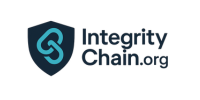Canada: Strong Ethics on Paper, Gaps in Practice

Canada was once seen as a potential leader in whistleblower protection, especially with its early adoption of a public sector disclosure law. But decades later, its framework is widely considered one of the weakest among developed nations. Despite having a legal structure in place—especially for government employees—Canada has failed to deliver justice or meaningful protection in most high-profile cases. This post explores the legal landscape, systemic shortcomings, and key case studies such as Allan Cutler, who exposed corruption in government procurement.
The Legal Framework
1. Public Servants Disclosure Protection Act (PSDPA), 2007
- Applies only to federal public servants.
- Allows disclosure of wrongdoing within the federal government.
- Designates the Office of the Public Sector Integrity Commissioner (PSIC) to receive disclosures.
- Offers:
- Confidentiality
- Legal immunity from civil/criminal prosecution
- Right to compensation for reprisals (on paper)
2. Provincial Protections
- Some provinces (e.g., Ontario, Alberta) have passed whistleblower protection laws for public sector workers.
- Private sector whistleblowers rely on patchwork laws, such as employment and human rights legislation, with no dedicated protection or reward system.
Case Study: Allan Cutler and the Sponsorship Scandal
Background:
Allan Cutler, a procurement officer at Public Works and Government Services Canada, uncovered irregularities in government contracts linked to the Liberal Party in what became the Sponsorship Scandal.
Outcome:
- He reported the issue internally in 1996.
- He faced retaliation, demotion, and eventually resigned.
- His disclosures led to a public inquiry, numerous criminal charges, and sweeping political fallout.
- No formal protection or compensation was provided under existing laws at the time.
Impact:
- Sparked the creation of the PSDPA.
- Cutler later described the law as a “failure” for not protecting real whistleblowers.
Strengths
- Independent Integrity Commissioner: The PSIC can investigate disclosures and recommend corrective actions.
- Statutory Protection: Whistleblowers can’t legally be fired or disciplined for disclosures.
- Provincial Initiatives: Some provinces have better transparency rules at the municipal and educational levels.
Major Weaknesses
- Low Success Rate: As of 2024, only 2 whistleblowers have ever been granted reprisal protection under PSDPA in over 15 years.
- No Private Sector Law: Canada lacks a national whistleblower law for corporate or financial sector wrongdoing.
- No Financial Incentives: Whistleblowers receive no reward or compensation even if public money is saved.
- Opaque Investigations: Reports by the PSIC are rare and often inconclusive.
Reform Pressure
- The House of Commons Standing Committee on Government Operations and Estimates called for 15+ reforms in 2017.
- Transparency International Canada has ranked Canada among the worst G20 countries for whistleblower protection.
- Advocates propose:
- Expanding the PSDPA to the private and provincial sectors
- Establishing a Whistleblower Ombudsman
- Introducing financial rewards for public interest disclosures
Conclusion
Canada has legal structures in place but lacks the will or execution to make them effective. The case of Allan Cutler and the near-zero success rate of protected disclosures underlines the urgent need for reform. Until Canada delivers real protections and incentives, it risks being seen not as a defender of truth—but as a cautionary tale.



